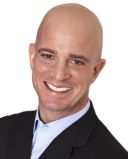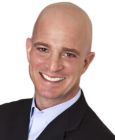Health
Brian “Head” Welch Walks Through the Door
The Korn guitarist discusses mental health and the Loud Krazy Love movie.
Posted July 23, 2019 Reviewed by Abigail Fagan
“Life is degrading and silently making me
Spun out inside my own head
Spewing and craving, this darkness is baiting me
Down the road to my own death”—From “You’ll Never Find Me” by Korn
Like many of us, Brian “Head” Welch grew up with rock and roll fantasies.
“When I was a kid … I wanted to be a rock star like AC/DC or Randy Rhoads or Eddie Van Halen. I could just get lost in the fantasy and lost in the sounds of creating music,” Welch told me. “I would just love the thought of, ‘Oh that would be so cool if I could figure out my life and make a living with music and be a rock star.'”

But unlike many of us, Welch actually became a rock star. Welch is the guitarist of nu metal pioneer Korn. Korn’s eponymous 1994 album is considered the best nu metal album of all time by Revolver, Loudwire, and Kerrang!, and one of the best heavy metal albums of all time by Rolling Stone.
And 25 years later they are still going strong, touring the United States with Alice in Chains and releasing their new album The Nothing in September.
At first, Welch’s rock star reality matched the fantasy. “I did actually have a great time the first five years of the band,” he said. “We were building up to that mountain—number one in the country—we were building up to that so the ride up was amazing.” But finding out that our fantasies do not protect us from real-world realities can be crushing. And in his Showtime movie Loud Krazy Love, Welch shares not only his history of depression and addiction, but also how it was spirituality rather than rock stardom that helped him recover.
Welch shared how he struggled with depression. And despite attempting to present as someone enjoying his success, he simply could not find peace. “I was a mess ... just a lot of depression and self-loathing … you put on the face and you try to have a good time. Professional musicians are just people that want to do that for a living—it's just a job. It's not like a magical thing that makes us perfect. If you're a depressed person and you're a landscaper then you're going to be a miserable landscaper,” Welch recalled. “I'm making it in music and so you think that this is going to be the answer—maybe this will cure your mental health issues. You see people all the time that are famous and that are rich and it does not cure the depression or doesn't bring happiness."
In fact, rock stardom actually made Welch’s mental health worse. As an example, Welch felt that no matter how gratifying being on stage and performing was, he would repeatedly have to contend with being away from his wife and young daughter. “The stage is so awesome. You stay at nice hotels and everything but then you have the other side of it where you're gone from your family. There was no FaceTime back then,” he reflected. “You're on the phone trying to keep your wife feeling that she's very loved by you and that she's the only one. And then you have the kids that are missing their dad or don't know who they are yet when they're babies. You come home and they look at you and they go run to their mom. And it's like, ‘No I'm Daddy.’”
While Welch loved performing live shows, repeating the same show day in and day out often felt difficult. This was no doubt worsened by depression, where some of the main symptoms are loss of pleasure and energy. “From the stage, it looks all glamorous—you stay in nice hotels and you make good money. But then what it actually feels like is like you're a carny—like you’re in a carnival,” Welch said. “And you go there and you set up your tent … It's not every day but you do the same show that you did the night before and you try to have passion for it and not be like, ‘Oh my gosh I'm doing the same thing I did yesterday.’ And it's a month into it so it's the 28th night in a row or whatever.”
Soon, Welch found that drugs and alcohol pervaded his rock star world, resulting in addiction and exacerbating his depression. “Tons of us are dealing with mental issues. When you have the drugs mixed in, then you have massive emotional issues that will come with the effects of the drugs—the hangovers, the depression,” he explained. “And then you have the drug dealers that are there … it's like a party every night. People come and want to hang out with the band every night and there are guests. It's like if you're at home and had guests in your house every night it would get a little old right? So, I think people cope with it by drinking socially—drinking and doing drugs to just deal with it because it's just not a normal life. That's why I became miserable.”
Soon, everything around Welch started to fall apart. He left Korn in 2005 and eventually divorced his wife. “I couldn't keep anything together … my marriage failed ... the band relationships were hell. I was doing business with friends and those friendships were suffering because of disagreements,” he said. “I'm supposed to be happy living this dream. But my wife's gone … my bandmates, they're all addicts … we all turned into idiot freaking prideful rock stars. Everything was a mess and I didn't like living. And I didn't know what to teach my daughter … I'm like ‘Go for your dreams and when you reach your goals you'll be so happy’ … I have everything I ever wanted and I'm miserable.”
As the trappings of rock stardom failed to provide Welch with the peace that he craved, he began to focus on what he could do internally to make a change. “So, there was something inside internal that I had to start to work on. I wanted to have peace in my life. I wanted to have happiness. I wanted to be content,” Welch explained. “And I was just like a yo-yo – my emotions going up and down. I didn't want to freak out over things that would make me angry. Things like my daughter disobeying … But most of all I wanted my daughter to have stable parents and be like this is what a mature adult looks like. I was like this teenager trapped in an adult body and with just flawed emotions like a teenager at mid-30s.”
Soon Welch found peace in what he considered an unlikely place – religion and spirituality. He was reluctant, to say the least. “And so I ended up at this church that I didn't want to go to because I thought all those people are like Ned Flanders from The Simpsons. You just don't like them and they are irritating. But they just said, basically, ‘This is what the Bible teaches and he'll come and live inside of you and you can test it for yourself. Don't believe us, go figure it out in your personal time.’ And so I did that. I was like okay I'm going to try it. I went in my personal time and tried everything and it really worked. And that was a big thing,” Welch described. “After that, the lights turned on and I'm like this stuff is real and I can connect with this Jesus from the afterlife and get healing. Now, the process begins. It was like a door that opened to a big process.”
As Welch describes it, he spent the next several years working specifically on how to understand and manage his emotional reactions. In order to do so, Welch found himself making a distinction between what he felt were more acute emotional reactions and what he considered to be more enduring spiritual beliefs. He felt that his ability to work on both issues contributed to his recovery.
“Every relationship I ever had … I feel like I ran to the ground because my emotions were out of control. I wanted to be a loving person. But I didn't know how to love a person because I didn't love myself. It's like my heart had been shattered in a million pieces over mostly my own mistakes and ruining the relationships,” he said. “I feel like the emotional aspect of what I'm talking about is more of our human responses … what we have to deal with here emotionally. And the spiritual is more like the eternal, the afterlife … To me that's a fear that feels real to people – possibly being miserable forever – eternally miserable. I just know that my experience spiritually through Christ has been like the negative emotional memories that were stored up in my inner life have been completely erased. The things that wounded me to even to think about or talk about – I don't feel the sting of the emotional pain from that anymore.”
Welch was quick to clarify that his approach to religion does not have a “political” bent. “I felt a love from a different dimension. That is how I can describe it. I'm not like the political Christianity or American religious Christianity," Welch described. "Mine was deeply personal and internal – like a deep feeling of love, forgiveness, acceptance. It’s not, ‘Well we believe this so this is what I want everyone to live as.’ Humanity has been given free will and free choice so we can all choose what we want. Christ wants to live in us – he says that you are in me and I am in you. And that's where faith comes in – but it's love. You don't judge.”
Part of Welch’s ability to be in a less judgmental space has developed through his meditation practice. “I have a lot of peace and when things happen I don't fall into this gut reaction of anger or stress or rage – I usually just can take it. I'm human so you have emotions that come but they're way less tense and I can deal with them now,” he explained. “I’ve learned how to contemplate with the meditation. Mine's just more relational with God – contemplation – just quiet prayer where you're almost listening and just feeling and having that experience.”
Having this non-judgmental perspective also allowed him to challenge the stigma of taking psychotropic medication. When Welch initially embraced a more spiritual lifestyle, he stopped taking all forms of medication. But eventually, he felt that medication to manage his mood could be consistent with his religious beliefs.
“I took a lot of medication before I had that spiritual door open. I took anti-depressants like Celexa. I took Xanax in an unhealthy way. I would take Xanax every day, but if I started partying a lot and then started doing coke I would take more Xanax. You know you can't do it like that – you've got to take it in a responsible manner,” Welch said.
“When I became spiritual I stopped taking all medication for like a year. It was the thing where I'm like okay I'm going to find my peace from that love … and I'll be fixed from that. And about a year goes by and some of those old dark feelings came back. And I think there's a stigma sometimes with medication. I'm back on Celexa and I have been for years … and it helps level my emotions,” he said.
In Loud Krazy Love, Welch discusses how he feels now that he’s gotten to a better place in his life. He has returned to Korn, and has reconnected with his daughter, Jennea. “We communicate and when we do have issues just like every family does we know how to talk about it or take a break and come back,” he described. “Everything is better now. Everything emotionally, relationally, in every aspect of my life and business-wise too. Everything has improved.”
Welch is hoping that by sharing his story through Loud Krazy Love he will help others who may be going through similar circumstances. “I just feel that it's so important to be open and vulnerable … because rock stars are just people and we deal with issues and we have to get through life just like everybody else. In the movie I share so many personal things – a lot of failures, getting through issues that, mistakes that I've caused and the ramifications of those. I'm going through the healing and all that so I'm really proud of that aspect of the movie,” Welch explained.
“Everybody knows someone that's addicted to alcohol or drugs so I think that it would cross over to a lot of different people and, hopefully, it will."




